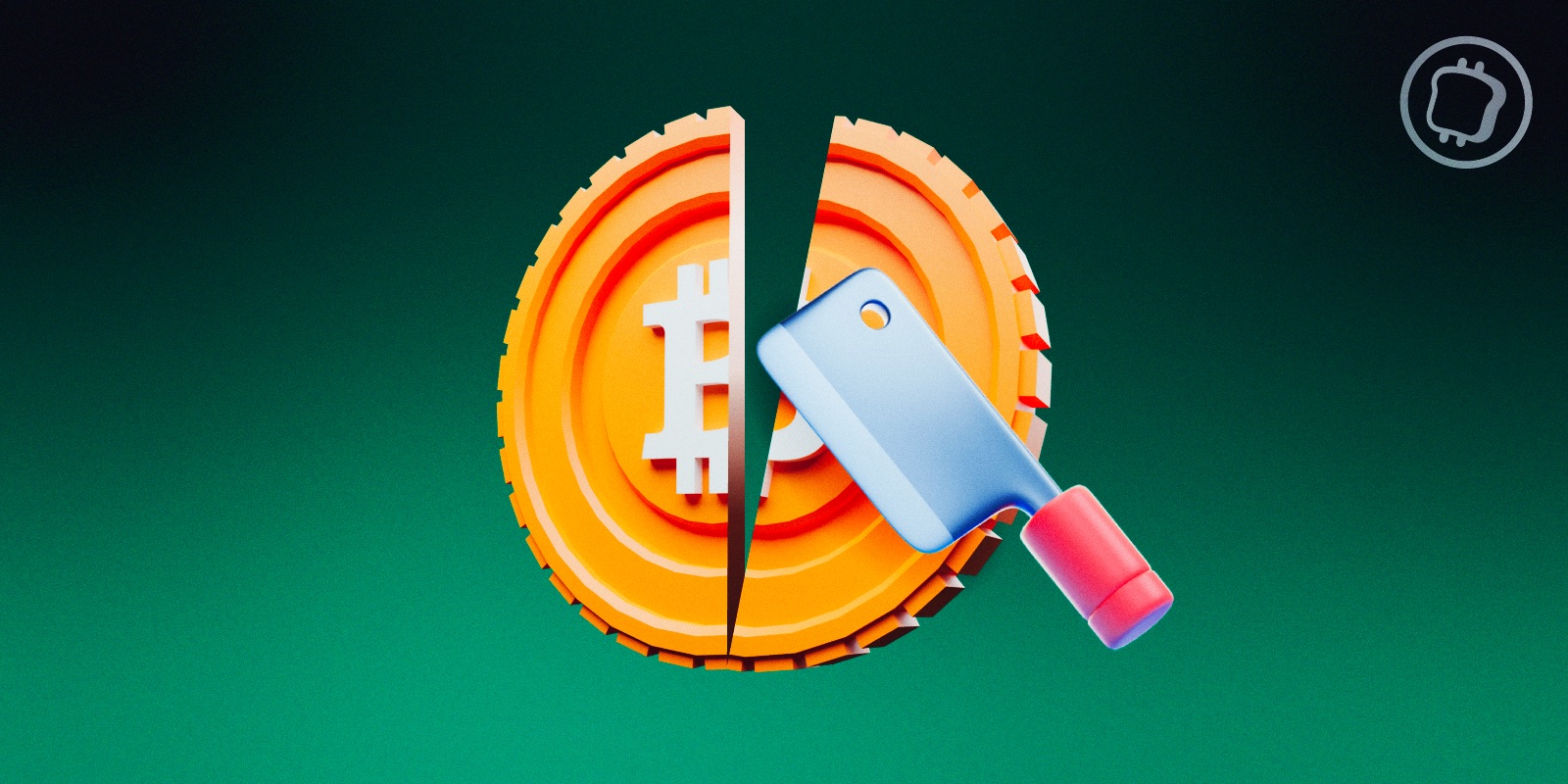In recent years, a new form of investment scam has emerged: “pig butchering.” What does this scam involve? Why is it often difficult to spot? Let’s take a closer look at this particularly sophisticated technique that relies on manipulating victims.
“Pig butchering”: definition and explanations
Pig butchering is a method used by scammers to manipulate their victims in sometimes very advanced ways.ein order to extract money from them.
The method can be translated into French as “slaughter” or “fattening the pig”. It gets its name from the nature of the scam. The scammers gain the trust of their targets by pretending to be another person over a period of weeks or months to “fatten” them… Before “shooting” them, that is, stealing their money or cryptocurrencys.
Scammers seduce their victims, either in a friendly or romantic manner, over a long period of time.. Once they are sure that the victim believes in the sincerity of the relationship, they take action. They then find a way to extort money from their target.

Then they disappear. Sometimes they manage to extract money on a regular basis for several months. The pig butchering scam is therefore above all a psychological scam.
💡 Top 7 Most Common Cryptocurrency Scams – How to Spot Them?
So what is the scammers' method? By understanding how a scam of this type works, you will know how to identify them and protect yourself from them.
Here are the main steps that are generally followed by a pig butchering scam, which can help you spot the method:
- First contact : The victim is contacted via social networks, messaging applications such as Telegram or WhatsApp, or dating sites. The approach must appear natural and the criminal pretends to be a fake person invented from scratch;
- Seduction and creation of a false bond : Scammers take the time to establish a seemingly sincere relationship with their intended victim, sharing personal information and enticing the victim to confide in others about their personal life. Often, they seek to create a romantic bond;
- Mention of an “investment” or need : After a while, the scammer mentions an “opportunity” that allowed him to make money, without necessarily inviting the victim to invest immediately. Alternatively, he may also mention financial difficulties. But without any specific request at this stage;
- First request for money : When the moment is deemed opportune, the scammer offers the victim to invest in this opportunity. Or he asks for money for an urgent expense. Often, the initial amount is small, so that the request seems reasonable;
- The first “gain” : In the case of a fake investment, the scammer may pay the victim a sum of money to make them believe that they have made a profit. This is the “fattening” phase where the victim thinks they have made a good deal thanks to their “friend”;
- Pig slaughter : The scammer, having completely gained the victim's trust, then asks for more money with the promise of even greater gains. Or he claims a new, more serious emergency that requires a larger sum. Once the money is received, he disappears.
Ledger: the best solution to protect your cryptocurrencies 🔒
Financial and psychological consequences
Pig butchering is particularly harmful because it allows scammers to steal large sums of money while causing psychological damage. The victims believed they had found a confidant, or even a romantic partner. But the connection suddenly ends, and they also discover that they have been the victims of a scam.
Often, out of shame at having been deceived, victims hesitate to report the crime to the authorities.which allows scammers to go unpunished. This is part of the mechanisms that make these scams difficult for law enforcement to detect.
Have you been scammed and your funds stolen?👇
Sent successfully!
Be contacted by our partner law firm 🤝🏻
Advanced techniques, with real organized networks
Many websites and social networks have reported the rise of this type of scam. Instagram and Facebook, for example, have communicated on the difficulty of detecting these organized networks..
Often, these are real illegal companies based abroad, and even if the victim thinks they are communicating with a single person, it is actually an entire team trying to extort money from them. The “relationship” is therefore completely fictitious, since the scammers take turns and speak to several victims at the same time..
To camouflage their actions, scammers create fake accounts on social networks. These accounts are interconnected and appear authentic enough to fool the anti-fraud services of platforms like Facebook, Instagram or X. Often, scammers recycle old accounts abandoned by previous owners. This allows them to fool the automatic checks of social networks.
Moreover, the use of alternative payment methods (prepaid cards, cryptocurrencies, etc.) makes it more difficult to track stolen money. Unsurprisingly, the rise of generative AI also makes it easy to create fake images and videos, which help to create a fictitious profile. So a whole battery of techniques is used for the pig butchering scam.
👉 Find out how to secure and store your cryptocurrencies efficiently
It can therefore be difficult to detect “pig butchering”, as the method has been perfected. How then can you protect yourself? The first thing to check is the anonymity of the person you are talking to. While online friendships are common, make sure you're talking to a real person..
Clues may arouse your suspicions : Are this person's social media accounts regularly updated and consistent? Does the phone number used correspond to the country where they reside? Does the person try to deepen the relationship very quickly? Do they remember your conversations reliably?
Moreover, Any investment opportunity proposed – even offline – should be treated with the utmost caution. The higher the promised gains, the more suspicious the opportunity. Ask yourself this question: Why would someone I barely know give me an investment opportunity? What does he have to gain?
If in doubt, never share financial information or payment methods if you do not know the person. In the investment world, “golden” opportunities are extremely rare. So don’t get caught up in “FOMO” (fear of missing out)!
Join the Cryptoast community on Discord
I was a victim of pig butchering, what should I do?
If you have been a victim of pig butchering, The first step is to make sure the scammers don't have access to any payment methods, if you provided any.. Change your passwords and, if necessary, block any payments in progress. Then, do not delete the conversations you have had: they can be used as proof.
It is then important to report the scam to the authorities. In France, an online portal for Internet scams (THESEE) has been set up by the government to file a complaint and possibly group your file with those of other victims.
As we have seen, scammers who use the pig butchering technique can play with our emotions and show a lot of patience. It is therefore crucial to never send money to an unknown person.When in doubt, don't try it, it's not worth the risk.
Have you been scammed and your funds stolen?👇
Sent successfully!
Be contacted by our partner law firm 🤝🏻
The #1 Crypto Newsletter 🍞
Receive a daily crypto news recap by email 👌
What you need to know about affiliate links. This page may feature investment-related assets, products, or services. Some links in this article may be affiliate links. This means that if you purchase a product or sign up for a site from this article, our partner pays us a commission. This allows us to continue to provide you with original and useful content. There is no impact on you and you can even get a bonus for using our links.
Investing in cryptocurrencies is risky. Cryptoast is not responsible for the quality of the products or services presented on this page and could not be held responsible, directly or indirectly, for any damage or loss caused following the use of a good or service highlighted in this article. Investments related to crypto-assets are risky by nature, readers must do their own research before taking any action and only invest within the limits of their financial capacities. This article does not constitute investment advice.
AMF recommendations. There is no guaranteed high return, a product with a high return potential implies a high risk. This risk-taking must be in line with your project, your investment horizon and your ability to lose part of these savings. Do not invest if you are not prepared to lose all or part of your capital.
To go further, read our Financial Situation, Media Transparency and Legal Notices pages.










